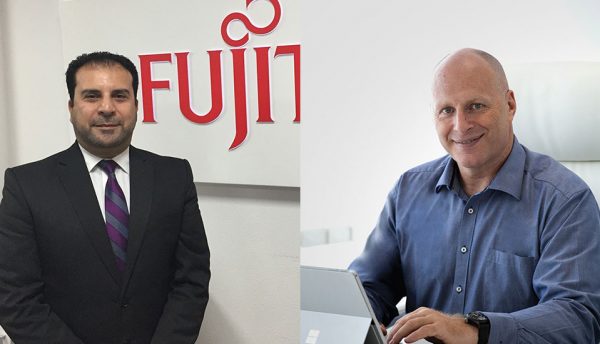Value Added Distributors (VADs) play a key role in the channel, but it’s not always plain sailing, especially in such an ever-changing landscape. By Pippa Sanderson.
A true Value Added Distributor (VAD) offers not only top-quality pick, pack and ship services, but services and programmes that, not surprisingly, add value to the product being distributed. These services and programmes can include a raft of endeavours, such as channel training, channel marketing, and pre and post-sales services.
In the Middle East, there are a variety of challenges facing VADs, including the evolving IT landscape, liquid geopolitical situation and vendor investment. “I think the biggest challenge facing VADs is getting their vendors to invest in education and resources for the partners in the region (especially growing regions like the Middle East and Africa) and for partners in the region to leverage these resources to invest in their teams,” said Costa Boukouvalas, CEO of AgilityGrid, a Dubai-based company that provides security solutions for businesses and government bodies across the Middle East, Africa, Europe and Australia. “In a market that is rapidly changing and where margins in the technology sector are diminishing, it is only with value-add that vendors, distributors and system integrators/resellers can gain better market share.
“So, VADs are in a unique position of understanding the local market to help vendors roll out education and resources that local partners in the region can leverage in turn, to invest in the right resources that include services, which also means investing in training and certification for their teams.”
Amr Abdelsamad, Channel Director at Fujitsu ME & Pakistan sees two principal VAD challenges. “The first is the challenge ushered in by the dramatic transformation of the ICT landscape, such as the cloud, the Internet of Things, artificial intelligence and big data, which are transforming the world in which we live and compelling each and every industry stakeholder to revisit their operations,” he said. “It is important that all the partners in the supply chain – from technology providers and vendors to distributors, system integrators and channel partners – adapt to the changes with speed and agility. All available resources, including pre-sales, sales, technical consultancy and management, must be updated to the new realities and trained in these technology trends. Only this will prepare a business to meet the expectations of customers.” Abdelsamad continued. “The second challenge relates to the market situation. In addition to global economic pressures, the region is also facing vulnerabilities imposed by the low oil price and prevailing geopolitical strife. This affects VAD business, especially in relation to credit insurance and financing. It is therefore important that all cash-flow difficulties and collections are as streamlined as possible because they are the main drivers for the distribution business.”
As the world in which we live continues to evolve apace, VADs have to adapt to new technologies entering the market and help channel partners grow. To do this, Costa Boukouvalas revealed, “We continuously work with our channel partners to ensure they can easily access the right solutions for their market needs. This means deploying the right resources from our vendors and our own investment in resources like our demo centres, and qualified engineers to help them through the process.” Amr Abdelsamad added: “We are at the forefront of, and spearheading, many new technologies and we believe in digital co-creation, i.e. bringing together unconnected areas of expertise to find the insights and ideas to drive digital transformation forward, something that is already reshaping the world. We create end-to-end integrated solutions for our customers to help them cover all of their needs. We offer PrimeFlex Integrated solutions, covering all converged and hyper-converged infrastructure to help customers support their digital transformation and leverage the opportunities presented by big data. This will enhance the convenience and efficiency of IT business stakeholders, from VAD to system integrator, as well as the end-customer, as it delivers a fully ready preconfigured and tested solution. We are also focusing on developing and building PrimeFlex Integrated solutions with our alliance partners to cover the entire spectrum of business and customer needs.”
Continuous and evolving training is, of course, of vital importance, and plays a key role in the VAD repertoire to develop sales and implementation processes. In practical terms, “We ensure that all our vendors’ certification and training courses are rolled out to all our key channel partners across the region (Middle East and Africa),” commented Costa Boukouvalas. “These could be in person as part of a roadshow, but most vendors also have online courses that the remote system integrator partner can access.”
Amr Abdelsamad agreed. “Continuous training is crucial in this era of digital transformation as it is an imperative to support our customers with the right solutions. For this, it’s important our staff develop their strengths and understanding of the market. We feel that customers need to be further educated and trained on how to adapt to new technologies. This is why we have developed a customised training programme that covers all staff levels, from pre-sales and technical consultants to our sales force. We prepare them for today’s era of digital co-creation.” With IT becoming increasingly more complex, it’s important VADs help their partners bridge the gap and develop the necessary skills. “Our reputation has been built upon and maintained by working closely with our partners,” added Amr Abdelsamad. “They trust our counsel and, from our perspective, we understand how important it is to educate them about the latest trends. We have created a pre-sales tech community, including all our partners and pre-sales team, to share best practices and technical information so that they all have the same level of information and awareness about the latest technology trends. We also host regular workshops and training sessions for our partners to keep them abreast of new technologies.”
It’s also important to empower channel partners to differentiate in their business. “We specialise in high-performance video surveillance solutions, which is a rapidly growing market sector,” Costa Boukouvalas continued. “We offer best-of-breed solutions with unique and innovative features for IP storage, analytics and monitoring. This enables our partners to offer their customers exclusive options to make the best use of their video surveillance investments. In turn, this gives our partners the unique advantage of differentiating their position in the market and helps them to focus their resources and grow their business.” As for Fujitsu: “We empower our channel partners through different activities and tools such as training and certification on Fujitsu’s solutions and products, and by offering registration tools for account protection,” revealed Amr Abdelsamad. “We also extend special support for our strategic accounts in addition to hosting round tables and workshops for C-level executives for different business verticals and segments. In addition, we provide attractive channel incentive programmes that add value to our partners.”
Click below to share this article






